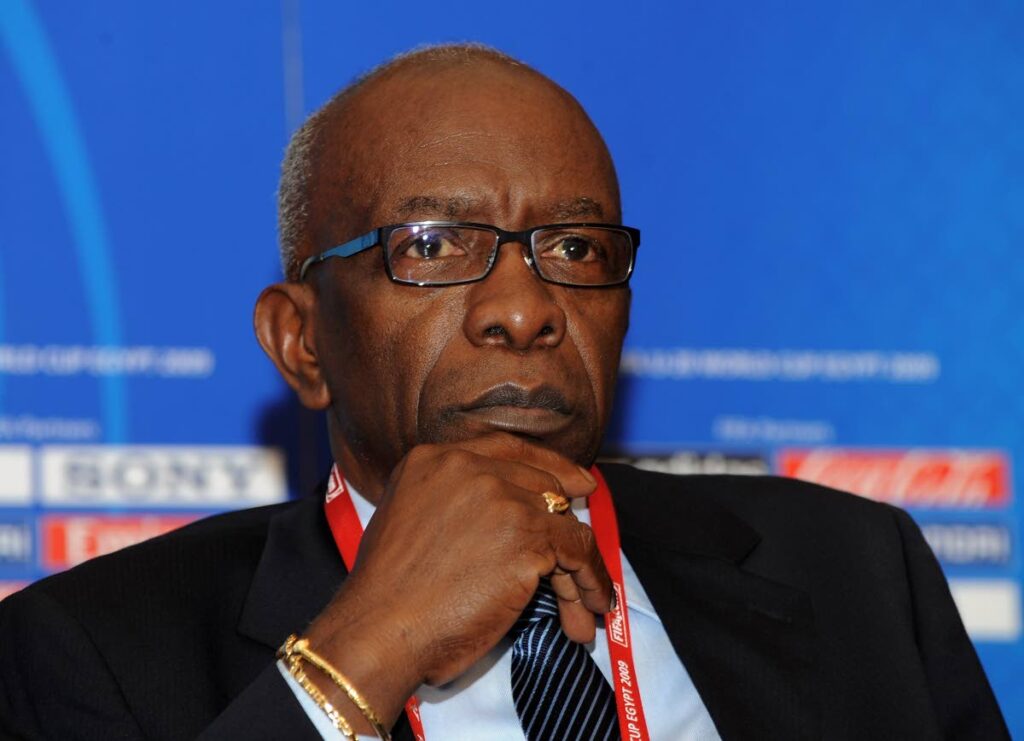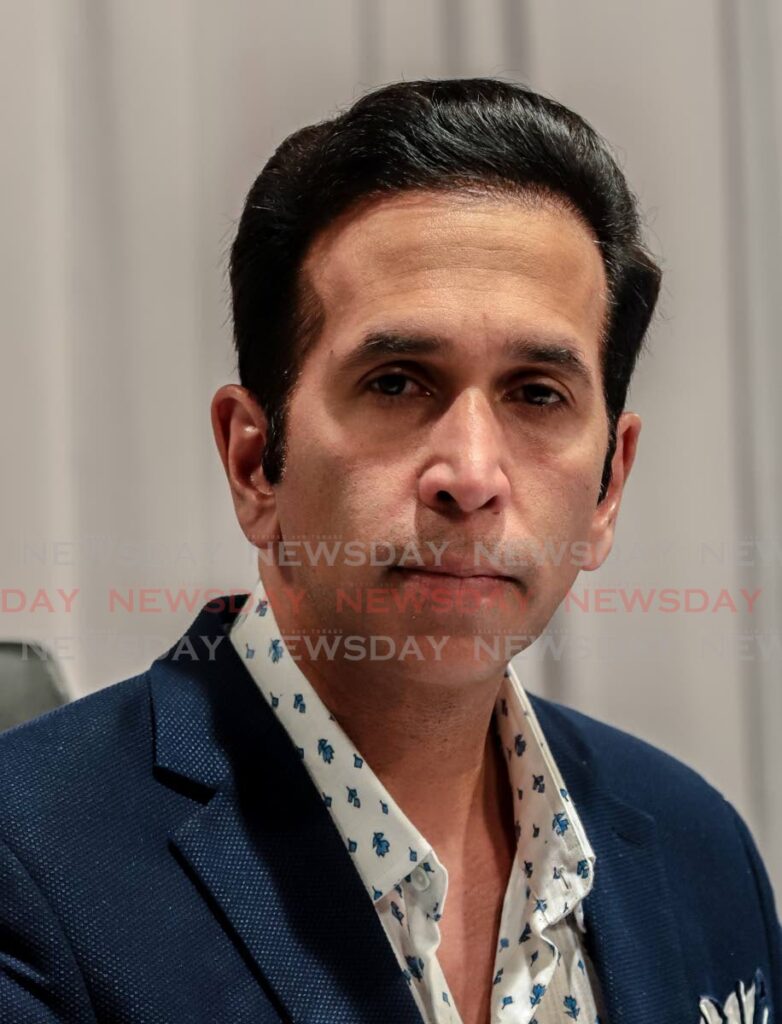Magistrate puts Warner's extradition on hold, slams ex-AG

Former FIFA vice president Jack Warner will be allowed to take his latest legal challenge to the High Court in his battle against extradition to the US to face a multiplicity of corruption-related charges.
In a ruling on Monday, Chief Magistrate Maria Busby Earle-Caddle said the seven questions Warner had raised were legally grounded and had merit.
She was also critical of the actions of the State, and those of the US.
Warner is now challenging the constitutionality of an alleged agreement former attorney general Faris Al-Rawi signed with the US in 2015 before he signed off on the authority for the chief magistrate to go ahed with extradition proceedings for Warner.
Warner’s argument relates to the arrangement between the US and TT for extradition and the speciality principle which, by law, provides that a person who is extradited can be prosecuted or sentenced in the requesting state only in relation to the offences for which extradition was granted, and not for any other crime allegedly committed before the extradition took place.
Earle-Caddle said the actions of the then attorney general (AG) lacked consistency.
She said the agreement should be in writing to ensure the requirements of the Extradition Act were adhered to, and only then can the AG sign the certificate to move forward with the extradition.
Al-Rawi, in his authority to proceed, certified there was an arrangement with the US.
"There appears to be colossal misrepresentation on behalf of the team by AG and the requesting state (the US)."
Warner’s latest legal challenge was prompted by a freedom of information request for the alleged special arrangement. He received a response from the Office of the AG saying a search of its Central Authority's records had not uncovered a written version of the arrangements.
Earle-Caddle said Warner’s application was not frivolous or vexatious, and referred Warner’s questions to the High Court for its immediate attention.
She further questioned, "How does one certify something that is possibly nonexistent? Is this the new norm where this is a flagrant disregard for what is right? Is this the presumption of regularity that ordinary citizens must now accept? A regularity of whatever is expedient? Surely not a rubber-stamping inimical to the protections guaranteed by our legislation and Constitution.”
She emphasised that the law was clear, as the extradition process involved the liberty of citizens.
"The end result of extradition is the deprivation of a person's liberty and subjection to a foreign jurisdiction. It is of paramount importance that any process which supports taking away that freedom must adhere strictly to the legal requirements."
She said entering into an agreement was intended to protect those rights.
Earle-Caddle said the burden was on the US to ensure that the speciality agreement was in place, and its absence may result in a breach of a citizen's rights.
Warner argued that in his case there was none, and the Chief Magistrate said she was inclined to agree. She said there appeared to be uncertainty that the arrangement existed.
Earle-Caddle maintained it was the statutory duty of the Attorney General to ensure the protection of citizens' rights.
"There must be a written copy of the arrangement in existence."

She said a diplomatic note was "surreptitiously" included by the State in its response to Warner’s application to give an ex-post-facto (after the fact) assurance that the speciality requirement will be observed if Warner is sent to the US to face the charges there.
She said this February 28, 2023, note did not negate the absence of an arrangement that should have been prepared in 2015, but lent credence to the apparent non-existence of the arrangement.
"A written arrangement is required along with the authority to proceed."
She also said Warner’s latest challenge bore no similarity to his previous one, nor was it an abuse of the court’s process.
She also said the written agreement was a pre-condition to the authority to proceed, and in the absence of one, there appeared to be a “colossal misrepresentation” by the team representing the State. This, she said, must be examined and, if true, condemned.
Earle-Caddle said the adducing of false representations by an executive arm of the State that had “the proclivity to breach the fundamental rights of our citizens can be likened to abuse and needs to be interrogated by the High Court not only for the benefit of the octogenarian or politically-sensitive person but the benefit of all citizens regardless of economic and social status, colour, creed, race or sporting interest.”
She also said, “An attorney general was expected to come to the court with clean hands to ensure that the legal process was not compromised and to maintain the public trust and confidence in the legal system.
“The questions raised will be referred to the High Court forthwith,” she ruled as she adjourned the extradition proceedings before her to January 22, 2024, pending the decision of the High Court.
Warner’s application to have the chief magistrate refer his questions to the High Court was made in February, which was the first after extradition proceedings resumed after the Privy Council’s ruling on his challenge in November last year.
On November 17, 2022, the Privy Council paved the way for the continuation of the proceedings to extradite Warner to the US to face fraud-related charges. The London court held that the US’s request for Warner’s extradition was not unfair.
The proceedings in the local court were stalled when Waner, the former FIFA jefe, challenged the process by which the extradition proceedings against him were carried out and sought to quash the authority to proceed (ATP) signed by the Attorney General in September 2015. This was after the US asked for him to be extradited to face 29 charges of fraud, corruption and money laundering. The request was made on July 24, 2015.
After the 2015 general election, Attorney General Faris Al-Rawi offered to allow Warner to make representations, but only on the condition the deadline for receipt of the ATP would be extended with his consent.
Warner refused to agree to the condition. His attorneys argued he was not given sufficient time to make representations, nor was he given disclosures of any evidence the US intended to use to secure his extradition.
The ATP gave the magistrate the green light to begin committal proceedings.
Warner is represented by Fyard Hosein, SC, Sasha Bridgemohansingh, Anil Maraj and Aadam Hosein. Appearing for ASP Alleyne, who is acting on the request of the US, are James Lewis, KC, Douglas Mendes, SC, Pamela Elder, SC, Ravi Rajcoomar, SC, Netram Kowlessar and Ryan Rajcoomar.

Comments
"Magistrate puts Warner’s extradition on hold, slams ex-AG"